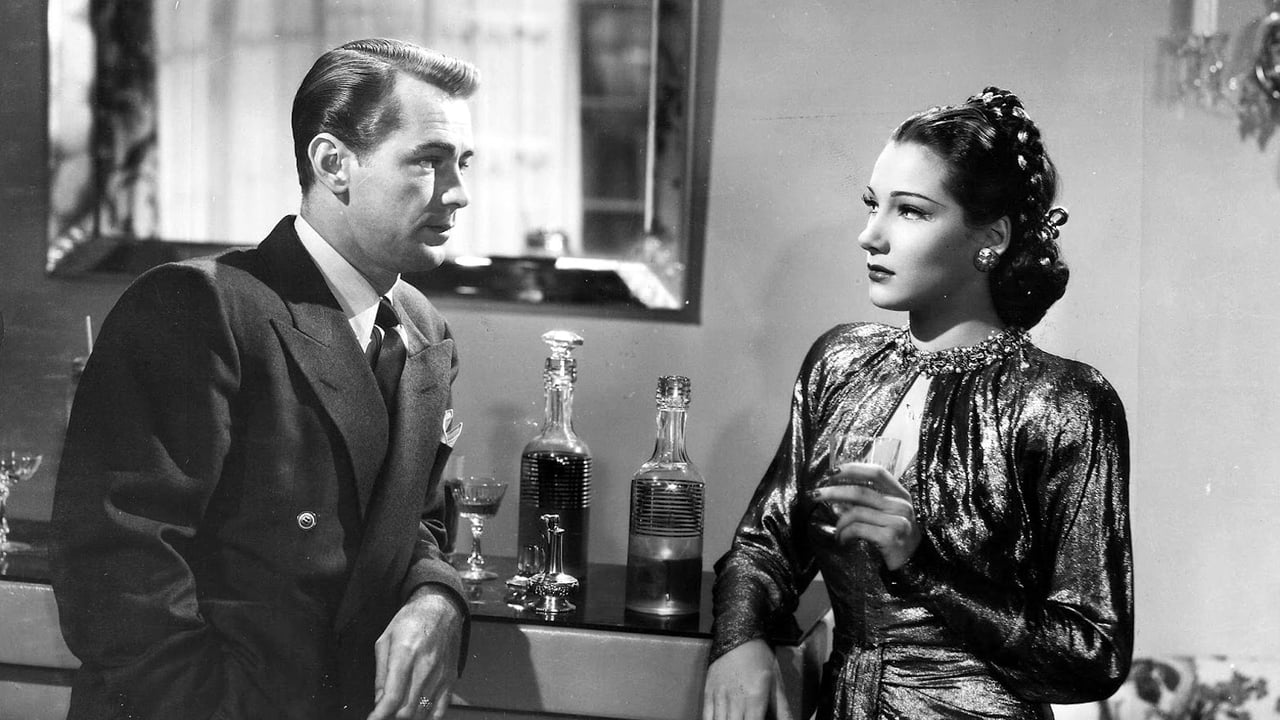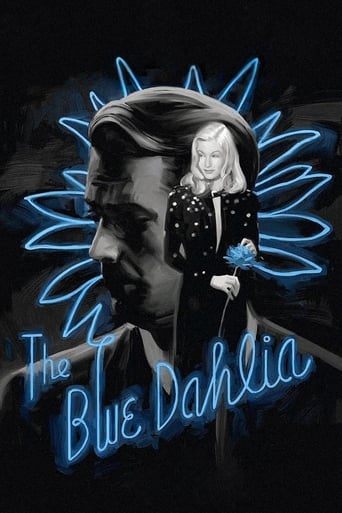

What a waste of my time!!!
... View MoreWell Deserved Praise
... View MoreSadly Over-hyped
... View MoreIn truth, there is barely enough story here to make a film.
... View MoreThe decorated veteran comes back home to find the butterfly wife maintaining her ways. He wasn't too shocked, since he knew her manners, but thought that she would have changed post motherhood. He was still ready to forgive her, and try to have another go but when she blurted out, that she was the reason of the son's death, the bond was broken, and he walked out. Her current lover too was bored of her, and preferred that she kept herself to her husband and leave him alone, probably so that he could get his estranged wife back. The spurned lover had a secret, and she threatened him with exposure, unless he came back to her, and remained so. Meanwhile the wife calls the husband's friends, to locate him, and his closest friend, with a mental disorder due to injury, making him violent as well as semi-amnesic in presence of loud noise, comes over to understand what went wrong and collect the man, and escort him back to his place. He doesn't find him, but finds the wife, who puts a dope on him, to his horror and repugnance, when he comes to know that this woman was his best friends wife. At night the philandering wife is killed, and then it is who dunnit. Husband, the prime suspect, we know didn't, but police thought otherwise. He has the maximum motive to kill the wife, unfaithful as well as son's killer. Then the lover, whom she was turning into her puppet, courtesy some damning secret she had on him. The husband's best friend, who abhorred her so much, that under the trauma (the loud music she was playing), he could have killed her. The paramour's partner/manager who wanted the paramour to be rid of her and may be a few more. The movie moves along in nice pace, and there are nothing very strikingly discordant about it. The meeting of the protagonist, was chance, but these chances, even in real life, creates stories, so I won't harp on that. If I start on it, even "It happened One Night" was pure chance, and in any real life story, there would be many such factors, which would direct the course. Was it fantastic? I don't think it was entirely improbable or bordering on impossibility. Of the whole story, there are a few factors which does border on very high improbability, and those should have been modified.First was entirely useless. The husband throwing the gun disdainfully before leaving. No one would do that. He definitely didn't leave it, so that the wife could use it on herself, since it was clear she didn't have any intention of doing that. Then why? The investigation in fact didn't harp on the gun used for killing being husband's service revolver. So this unnecessary sequence could have been avoided, disdain could have been shown without it.The much more improbable was the son's death, or the circumstances. The wife was a man-eater and highly 'spirit'-ed woman. With that set-up, I don't suppose she would be taking her son to the parties, where she was hunting for fish. First the presence of the son would be a deterrent on her intended targets, he would have an effect much more than a chaperone has. Second, the son was not baby but a boy. Any normal woman would keep him away from her private activities. The death, due to her carelessness, even may be under intoxication, could have been better managed. Another question arises, how did the paramour know she was murdered, when it could have been a suicide as well? It was brought in to make him prime suspect, in the eyes of audience. But then it should have been explained how he knew. That wasn't done. Except these few incongruities, I didn't find any stark one. The romantic angle between Ms Lake and Ladd had been kept on a very low profile, but that is understood. She was still married, may be estranged, and may be was no more in love, but still did care for her husband's welfare. So starting a torrid romance would have been a bit eyesore, and it remained at the stage, where she cared, may be a bit more than care, to provide the irrefutable alibi of his innocence, but still not in head over heels in love.Ladd, Bendix, Howard Da Silva, Lake, Helen Morrison etc fitted the role. Don Costello seemed a bit soft for his line of work, a bit, but not too incongruous. In fact the one I found a bit puzzling was the second friend, George Copeland (Hugh Beaumont), the lawyer. He was almost villainous, most unsympathetic to the protagonist. This isn't really understood, especially when the hero had been the life saver for both, as they claimed, in many sorties.
... View MoreRaymond Chandler sometimes reminds me of F.Scott Fitzgerald. Both writers fuelled their industry by filling up their creative tanks with alcohol. You can detect this when reading their stories, especially those by Chandler. They are always interesting, because the plot lurches tipsily from one angle to another, and you never know what's going to happen next. This is because the author doesn't know either.By all accounts, he didn't know what was going to happen in this, his only solo screenplay. But he was a dab hand at penning dialogue, and description. In this film his alter ego must have been Buzz, hiding his intoxication under a plate covering a wound in his skull. Buzz gets the best lines. He is fantastically blunt and rude to everyone else in the story. He's pretty ready for a drink, as well. Straight bourbon, with a bourbon chaser. Followed by a variety of fist fights.One way of figuring a whodunnit is to pin the murder on the least likely person. This isn't too difficult here, since there is no real reason for the least likely person to feature in the story, and you might well wonder what he's doing in it the first place. In fact, he has no obvious motivation at all, which makes the ending fall slightly flat. But it is still quite entertaining, and it keeps you guessing. The loose ends are not otherwise very well tidied up. Why is the film called The Blue Dahlia ? Who actually shot Harwood, the owner of The Blue Dahlia ? What happened to his henchmen ? Not to worry. Just sit back and let it all sink in. The hangover won't arrive until later.
... View MoreGeorge Marshall's The Blue Dahlia marked the third time leads Alan Ladd and Veronica Lake starred together in a film noir - following This Gun for Hire and The Glass Key (both 1942) - and, more notably, the first time that legendary author Raymond Chandler penned an original screenplay. Chandler's infamous struggle to finish the screenplay after the studio refused to shoot his original ending - while filming was rushed through in fear of Ladd having to return to the Army - works both in favour of the film and against it. On one hand, The Blue Dahlia is a rather scrappy, messy noir, lending it a certain ruggedness, and on the other hand the film's climax seems rather sudden and out of the blue.Three discharged Navy officers, Johnny (Ladd), Buzz (William Bendix) and George (Hugh Beaumont), arrive home after serving in the South Pacific. Before Johnny returns to his wife Helen (Doris Dowling), the three stop for a drink and almost get into a fight when Buzz, suffering from shell shock and a metal plate in his head following a war injury, demands that a fellow officer turn off the loud 'monkey music' that causes him to suffer from delusions. At his home, Johnny returns to discover his wife drunk and having a none-too-discreet affair with nightclub owner Eddie Harwood (Howard Da Silva). Livid, Johnny threatens her with a pistol before leaving and eventually hitching a ride with Joyce Harwood (Lake), who just happens to be Eddie's ex. When Helen turns up dead the next day, Johnny finds himself on the run from the law with a mystery to unravel.While it was understandably overshadowed by Howard Hawks' masterpiece The Big Sleep released the same year, The Blue Dahlia is a solid piece of film-making, bolstered by a suspenseful central murder mystery that keeps you guessing until the very end. Ladd is suitably stoic and hard-boiled as the protagonist, but the film undoubtedly belongs to Bendix as the unpredictable and somewhat tragic damaged war hero, with the film's opening scene establishing just how lovable yet threatening his character can be. Chandler didn't warm to Veronica Lake, famously dubbing her 'Moronica Lake' and suggesting she works best when she keeps her mouth shut and sits pretty. His comment was certainly unfair - Lake was an enigmatic screen presence - and Chandler punishes her with a rather slight amount of screen-time and a character who fails to offer any real impact on the plot. Still, this is a clever, engrossing noir, with special mention also going to Da Silva, one of the victims of the Hollywood blacklist.
... View MoreA film noir starring Alan Ladd and Veronica Lake, scripted by Raymond Chandler, sounds right up my street. And so it mostly proved, with a murder mystery, femme fatales, tough-talking cops and lots of rain, shadows and fist-fights.Ladd is the conquering war hero with the faltering home life. Demobbed with his two Air Force buddies, one cool and sensible, the other hot-headed and traumatised, he returns to his home (actually a hotel suite) only to find his floozy wife boozing and schmoozing it up with a smooth night-club owner. They argue and are overheard by the hotel's seedy house-detective who later plays both ends in a blackmail scandal when the wife ends up dead and Ladd's Johnny Morrison character goes on the run.While some of the writing seems rushed (the identity of the murderer for one thing plays against everything the film has been leading up to) and unnecessarily padded (when Ladd is kidnapped and taken to a run-down hotel by a couple of cheap crooks), there's still a lot to like. The dialogue and even the plotting may not be the very best of Chandler, but it's still hard-boiled enough. I liked the direction too even if it lacked the verve of the best noir film-makers. A big plus was the acting, Ladd is convincingly laconic and William Bendix is very good as his unhinged war-buddy. I also liked the actors playing the two untiring cops and Howard DaSilva as the super-slick club-owner who shows no upset at all about the violent death of the woman with whom he was having an affair and is soon chasing after the glamorous, icy ex-wife he never got over played by Lake.There's a neat dare I say Chandleresque irony in the plotting as Ladd and Lake pair off (if very coincidentally) just as their own wife and husband did before them. I thought Lake's character a bit contrived but that she did well with what she was given.As I indicated earlier, the denouement is a let-down, but I still got a kick from this tough and seamy little story, well gratifying my regular noir-fix.
... View More